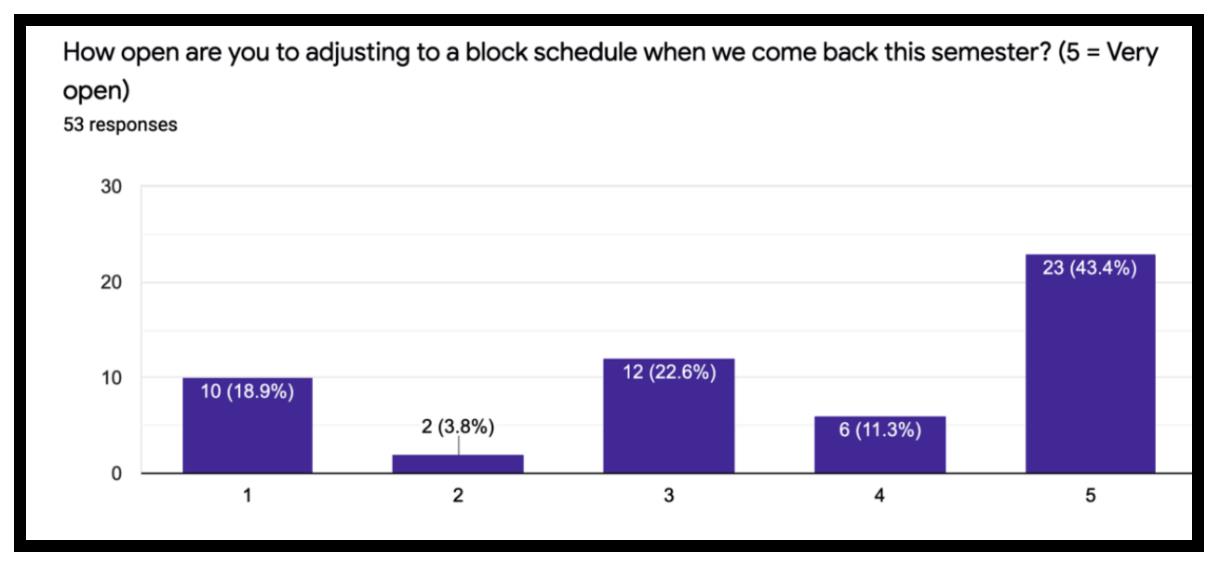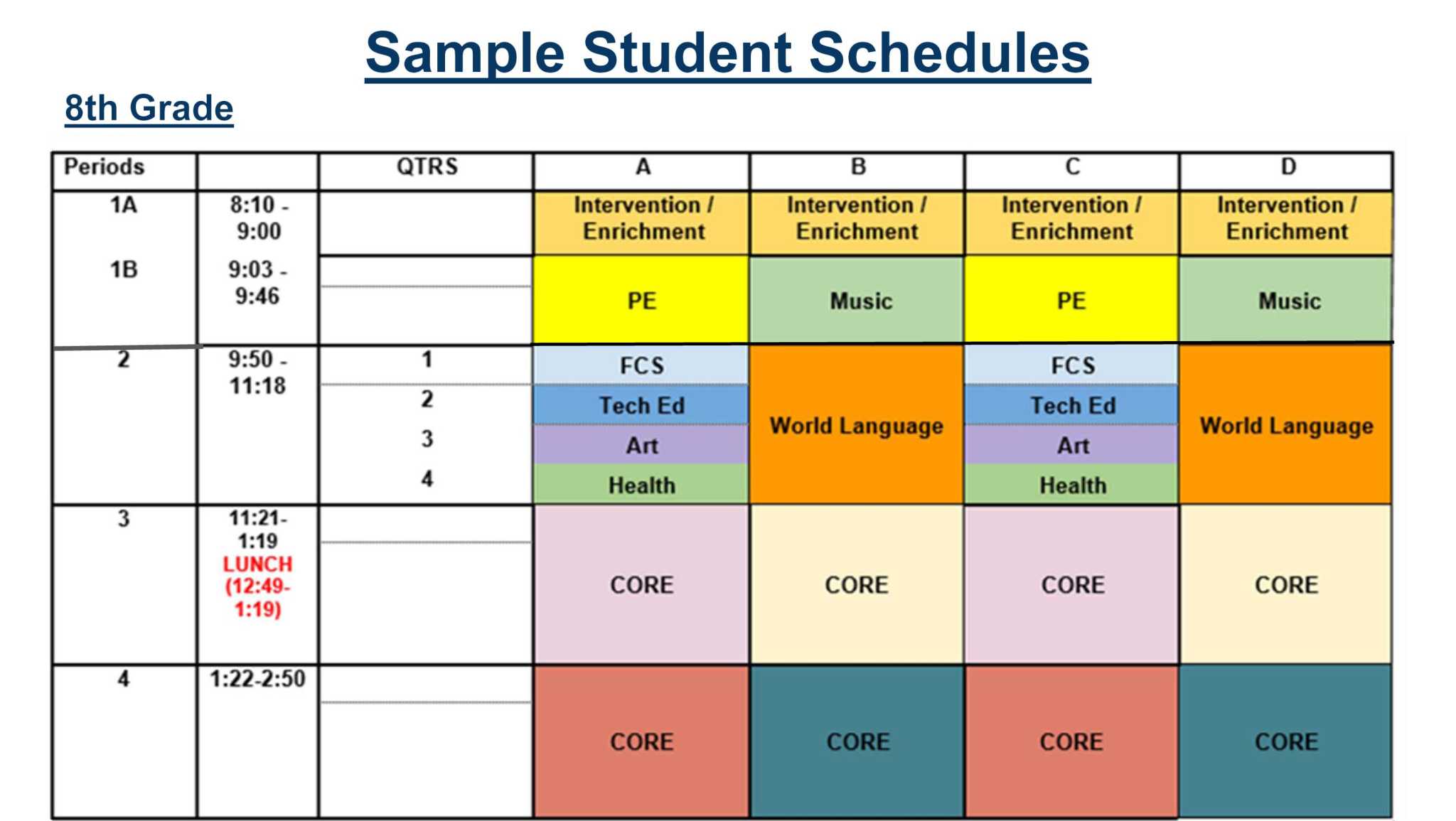Block Schedule For Middle School: 4 Ways To Implement Them And Their Benefits
7th December 2023

In this fast-paced world, education is trying to move past the traditional method of period scheduling and trying to find something more flexible. This is when the block scheduling comes in. It is a model that increases class time while decreasing the number of classes students have to attend each day. This method is gaining much popularity among educators and administrators. Read on to learn more about what exactly is this schedule, how you can implement one, and the benefits of such a routine.
What Is A Block Schedule?
A Block schedule is a scheduling system that replaces the traditional program of six to seven 40-50 minute sessions with longer periods of meeting a few times a week or day. A typical block schedule lasts for 90 to 120 minutes every other day rather than every day.

The idea was first born out of the experience many schools had during the pandemic as there were fewer classes of more minutes. Throughout the crisis, teachers saw their success with the students in terms of their academic growth. This is when administrators realized that fewer classes of more time would provide better opportunities.
With few periods per day, this scheduling allowed more time for the students and educators to dive deeper into their learning objectives. Since there are less frequent interruptions, teachers can cover more than one material within the given time frame. This allows teachers to be more focused on student learning thereby providing one-on-one support and additional learning opportunities.
Types OF Block Schedules
There are three types of block schedules that you can select from:
- Accelerated Block Schedule
This method allows students to attend four classes every month for four days during the first semester. After this, the student attends different class quarters in the second semester resulting in 90 minutes per class for 90 days.
- A/B Block Schedule

This schedule maintains the extended class period while dividing the course schedule into 2 halves A and B. The students in the A block will have the first 4 periods on a specific day while students in block B will take up the last 4 periods.
- Modified Block Schedule
This is a hybrid scheduling of the A/B schedule and the traditional method. Students attend certain periods every day for a shorter amount of time and some periods can be longer on alternate days.
Ways To Implement Block Schedules to Support Both Students And Teachers
Here are 4 ways you can implement a block schedule in your daily routine to support your teachers and students:
- Recess
Having a structured recess time allows time for students to play and socialize every day. They can sit and talk, play, or walk the track with their friends. The recess time is normally 25 minutes and knowing that they have this time prevents any disruptions that they might cause during instructions.
- Student Success Skills (SSS)
This is a session that happens for 80 minutes every day. Teachers use this time to facilitate the social and emotional learning of the students. During this time students practice skills, facilitate content review, lessons, tasks, non-academic assemblies, etc. basically anything that is not part of the core curriculum.
- Reset Block Detention
When you observe behavior issues, instead of assigning in-school suspension during class, you can offer a detention during Reset Block. This block is structured to be a restorative consequence with formal plans for students to reflect and restore their relationships with their peers or staff.
- Use Feedback as A Guide
Upon implementing this schedule, initially, you need to administer student, parent, and staff feedback through surveys. This will give you an idea that the model is working fine and is in sync with everyone’s expectations. You can evaluate if attending fewer classes has relieved students from stress and increased happiness and performance in their middle school setting.
Benefits Of Block Scheduling
Here are some of the perks of implementing a block schedule in your middle school:
- Better Time Management
Fewer class periods call for fewer disruptions during the school day. This improves teacher's lesson quality and their ability to complete routine administrative or class management-related tasks.
- Alternate Teaching Methods
When teachers enjoy interruption-free sessions they can use more innovative and varied teaching techniques to make the cases more engaging and interesting. Since they are not limited by time, they can also cater to individual student needs better.
- Cooperative Learning
Teachers can try the collaborative setting with smaller groups making it easier to combine their talents and ideas on a given topic and simultaneously work on building their social skills.
- Focus-Driven Approach
This scheduling lessens the workload on both students and teachers. With fewer sessions, teachers not only create high-quality lessons but also offer greater attention to detail in completing goals. They can also catch up on grading and other necessary time-intensive requirements that might cause stress for teachers both at school and at home.
Build Your Block Schedule For Better Support And Guidance
Block scheduling is becoming one of the most preferred teaching methods by teachers. This is because it allows both teachers and students to have a healthy relationship while facilitating improved student growth.
If you are unsure about how to implement such schedules in your middle school or are unaware of its consequences, try opting for a Diploma in Educational Administration and Management course. This will allow you to get a better idea of how to support your teachers so that they can deliver their best without getting burned out.
We believe education should be accessible for everyone. That’s why we don’t charge for our blogs. Find the right course that will help you in your career with us, contact us at 1800–212–6400. You can mail us at act@asiancollegeofteachers.com
Written By: Bindita Sinha